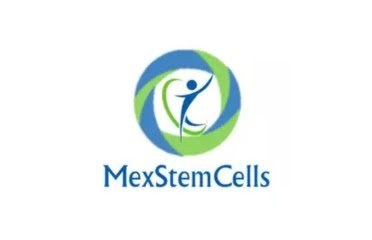
Las enfermedades autoinmunes, en las que el sistema inmunitario ataca por error a las células sanas del organismo, afectan a millones de personas en todo el mundo. Estas enfermedades pueden ser debilitantes y provocar dolor crónico, daños orgánicos y una disminución de la calidad de vida. Aunque los tratamientos convencionales, como los inmunosupresores y los antiinflamatorios, pueden ayudar a controlar los síntomas, a menudo tienen efectos secundarios y no proporcionan alivio a largo plazo.
Terapia con células madre ofrece un enfoque revolucionario para tratar las enfermedades autoinmunes atacando la causa raíz: la disfunción del sistema inmunitario. México se ha convertido en un centro mundial para la terapia con células madre debido a sus avanzadas instalaciones médicas, profesionales experimentados y tratamientos más asequibles. En esta guía completa, exploraremos cómo funciona la terapia con células madre para las enfermedades autoinmunes, por qué México es un destino ideal para este tratamiento, y lo que los pacientes pueden esperar cuando buscan atención en el país.
Costo de la terapia con células madre para enfermedades autoinmunes en México
Contenido
El costo de la terapia con células madre para enfermedades autoinmunes en México es significativamente menor que en países como Estados Unidos y Europa. En promedio, el costo de la terapia con células madre en México depende de la clínica, el tipo de células madre utilizadas y la complejidad del tratamiento.
| Terapia con células madre para enfermedades autoinmunes | Gama de costes (México) | Coste (EE.UU.) |
|---|---|---|
| Coste | $5,000 – $15,000 | $20,000 – $50,000+ |
Varios factores influyen en el costo de la terapia con células madre en México, incluyendo el tipo de enfermedad autoinmune a tratar, el número de células madre requeridas y si se utilizan células madre autólogas o alogénicas. Además, muchas clínicas ofrecen paquetes de atención integral que incluyen consultas, extracción de células madre, tratamiento, alojamiento y atención de seguimiento, proporcionando un mayor valor para los pacientes internacionales.
Clínicas líderes en terapia con células madre para enfermedades autoinmunes en México
México alberga varias clínicas de terapia con células madre de renombre especializadas en el tratamiento de enfermedades autoinmunes. Estas clínicas combinan tecnologías avanzadas con un enfoque de atención centrado en el paciente, ofreciendo planes de tratamiento personalizados para abordar la condición específica de cada paciente. Estas son algunas de las mejores clínicas de terapia con células madre en México para enfermedades autoinmunes:
Visani Stem Cells in Puebla, Mexico
Visani Stem Cells en Puebla es reconocida por su enfoque innovador en el tratamiento de enfermedades autoinmunes a través de la terapia con células madre. La clínica ofrece planes de tratamiento personalizados adaptados a la condición de cada paciente, utilizando células madre mesenquimales para reducir la inflamación y modular el sistema inmunológico. Visani Stem Cells es conocida por su avanzada tecnología y su atención centrada en el paciente, lo que la convierte en uno de los principales destinos para pacientes internacionales que buscan terapia con células madre para enfermedades como el lupus, la artritis reumatoide y la esclerosis múltiple.
Stem Health en Guadalajara, México
Stem Health en Guadalajara es un importante centro de terapia con células madre especializado en el tratamiento de enfermedades autoinmunes como la esclerosis múltiple, la artritis reumatoide y la psoriasis. La clínica utiliza células madre autólogas y alogénicas para reparar tejidos dañados y regular la actividad del sistema inmunitario. Stem Health es conocida por su equipo de médicos altamente experimentados y por centrarse en ofrecer tratamientos regenerativos de vanguardia en un entorno acogedor y de apoyo.
ProgenCell en Tijuana es una clínica de células madre bien establecida que ofrece tratamientos para enfermedades autoinmunes como la artritis reumatoide y el lupus. La clínica utiliza células madre mesenquimales extraídas del propio cuerpo del paciente para reducir la inflamación, promover la regeneración de tejidos y modular el sistema inmunitario. La proximidad de ProgenCell a EE.UU. y su reputación de atención de alta calidad la convierten en una opción popular para los pacientes internacionales que buscan terapia con células madre para afecciones autoinmunes.
Stem Solutions, situada en San Pedro Garza García, es conocida por su experiencia en el tratamiento de enfermedades autoinmunes mediante terapia con células madre. La clínica ofrece tratamientos avanzados para afecciones como la esclerosis múltiple, el lupus y la artritis reumatoide, utilizando células madre autólogas y alogénicas. Stem Solutions es famosa por su enfoque centrado en el paciente, que ofrece planes de tratamiento personalizados y atención integral a pacientes de todo el mundo.
MexStemCells en Ciudad de México, México
MexStemCells de Ciudad de México es una clínica líder en terapia con células madre que ofrece tratamientos para diversas enfermedades autoinmunes, como la esclerosis múltiple, el lupus y la diabetes tipo 1. La clínica está especializada en el uso de células madre mesenquimales para reparar tejidos dañados y regular la actividad del sistema inmunitario. MexStemCells es conocida por su tecnología de vanguardia y por centrarse en ofrecer tratamientos seguros y eficaces a pacientes con enfermedades autoinmunes.
Enfermedades autoinmunes comunes tratadas con terapia de células madre en México
La terapia con células madre se está utilizando para tratar una amplia gama de enfermedades autoinmunes en México. Aunque la respuesta de cada paciente al tratamiento puede variar, varias enfermedades autoinmunes han mostrado resultados especialmente prometedores:
1. Artritis reumatoide (AR):
En la artritis reumatoide, el sistema inmunitario ataca las articulaciones, causando dolor crónico, inflamación y daño articular. La terapia con células madre para la AR pretende reducir la inflamación, modular las respuestas inmunitarias y regenerar el cartílago dañado. Los pacientes tratados en clínicas mexicanas informan a menudo de mejoras significativas en la movilidad y reducción del dolor tras la terapia con células madre.
2. Esclerosis múltiple (EM):
Esclerosis múltiple es un trastorno neurológico autoinmune en el que el sistema inmunitario ataca la cubierta protectora de los nervios, lo que provoca alteraciones del movimiento, problemas de visión y otros síntomas. La terapia con células madre trata de detener la progresión de la EM reparando las células nerviosas dañadas y restableciendo la comunicación entre el cerebro y el cuerpo. Pacientes tratados en México han reportado estabilización de su condición y, en algunos casos, mejoras en las funciones motoras.
3. Lupus eritematoso sistémico (Lupus):
El lupus es una enfermedad autoinmune compleja que puede afectar a múltiples órganos, como la piel, los riñones y el cerebro. La terapia con células madre para el lupus en México está diseñada para regular el sistema inmunitario hiperactivo y reparar el daño tisular. Muchos pacientes experimentan una reducción de síntomas como dolor articular, erupciones cutáneas y problemas de función renal después de someterse al tratamiento.
4. Psoriasis:
La psoriasis es una enfermedad autoinmune crónica de la piel que provoca la rápida acumulación de células cutáneas, dando lugar a parches escamosos e inflamación. La terapia con células madre ayuda a modular la respuesta inmunitaria responsable de los brotes de psoriasis, ofreciendo a los pacientes alivio de los síntomas. Las clínicas de México ofrecen tratamientos avanzados dirigidos a la raíz de la enfermedad.
5. Diabetes de tipo 1:
En la diabetes de tipo 1, el sistema inmunitario ataca las células productoras de insulina del páncreas, lo que obliga a administrar insulina de por vida. La terapia con células madre ofrece esperanza al regenerar estas células productoras de insulina, reduciendo o eliminando potencialmente la necesidad de insulina externa. Los ensayos clínicos realizados en México están mostrando resultados prometedores en pacientes con diabetes tipo 1, con mejoras en el control de la glucemia y la salud en general.
Ventajas de la terapia con células madre sobre los tratamientos tradicionales
La terapia con células madre ofrece varias ventajas sobre los tratamientos convencionales de las enfermedades autoinmunes, que se centran principalmente en el tratamiento de los síntomas y la inmunosupresión:
- Atacar la raíz del problema: A diferencia de los fármacos inmunosupresores, que se limitan a amortiguar la actividad del sistema inmunitario, la terapia con células madre trata de restablecer o regular el sistema inmunitario. Esto puede conducir a una solución más duradera en lugar de limitarse a tratar los síntomas.
- Potencial de remisión a largo plazo: Los tratamientos tradicionales suelen requerir medicación de por vida para controlar los síntomas, mientras que la terapia con células madre ofrece la posibilidad de una remisión a largo plazo al reparar los tejidos dañados y regular la función inmunitaria.
- Menos efectos secundarios: Los medicamentos inmunosupresores pueden tener efectos secundarios graves, como un mayor riesgo de infecciones y daños orgánicos. La terapia con células madre, sobre todo cuando se utilizan células madre autólogas (del propio cuerpo del paciente), suele tener menos riesgos y efectos secundarios.
- Regeneración de tejidos: Además de modular el sistema inmunitario, la terapia con células madre favorece la regeneración de tejidos y órganos dañados. Esto puede mejorar la función articular en pacientes con artritis reumatoide o la función nerviosa en pacientes con esclerosis múltiple.
Índices de éxito e investigación de la terapia con células madre para enfermedades autoinmunes
Los índices de éxito de la terapia con células madre para las enfermedades autoinmunitarias siguen evolucionando a medida que se realizan más investigaciones y ensayos clínicos. Aunque la terapia con células madre todavía se considera experimental para muchas enfermedades autoinmunes, los primeros resultados son prometedores. Los ensayos clínicos han demostrado que la terapia con células madre puede conducir a una remisión a largo plazo en algunos pacientes con enfermedades autoinmunes, sobre todo en aquellos que no han respondido bien a los tratamientos tradicionales.
Por ejemplo, estudios sobre la esclerosis múltiple (EM) han demostrado que la terapia con células madre puede reducir la progresión de la enfermedad y mejorar la calidad de vida de muchos pacientes. Se han observado resultados similares en otras enfermedades autoinmunes como la artritis reumatoide y el lupus, en las que la terapia con células madre ha demostrado su potencial para reducir la inflamación y reparar los tejidos dañados.
El potencial regenerativo de las células madre se explora continuamente y, a medida que avanza la investigación, se espera que siga mejorando la eficacia de los tratamientos con células madre para las enfermedades autoinmunitarias. Los pacientes que estén considerando la posibilidad de someterse a un tratamiento con células madre deben consultar a su médico para saber cómo se ajusta la investigación actual a su enfermedad específica.
¿Qué hace a un buen candidato para la terapia con células madre en enfermedades autoinmunes?
Aunque la terapia con células madre ha demostrado ser prometedora para muchas enfermedades autoinmunes, no todo el mundo es un candidato ideal para este tratamiento. Los pacientes que consideran la terapia con células madre para enfermedades autoinmunes en México deben cumplir con ciertos criterios para aumentar la probabilidad de un resultado exitoso.
Los candidatos ideales suelen ser:
- Tener un diagnóstico confirmado: Los pacientes deben tener un diagnóstico claro de una enfermedad autoinmune, como artritis reumatoide, esclerosis múltiple, lupus o psoriasis, confirmado por un especialista.
- No han respondido a los tratamientos tradicionales: La terapia con células madre suele recomendarse a pacientes que no han experimentado una mejoría suficiente con los tratamientos convencionales, como los fármacos inmunosupresores o los biológicos.
- Gozan de buena salud general: Los pacientes deben gozar de una salud relativamente buena y no padecer afecciones que puedan complicar el procedimiento con células madre, como infecciones activas o diabetes no controlada.
- Están comprometidos con la atención posterior al tratamiento: La terapia con células madre no es una solución rápida, y los pacientes deben estar preparados para un seguimiento continuo que incluya rehabilitación, ajustes del estilo de vida y control médico.
Una consulta con un especialista cualificado en células madre en México ayudará a determinar si un paciente es un buen candidato para la terapia, teniendo en cuenta su historial médico, su estado actual y sus objetivos de tratamiento.
Preguntas frecuentes sobre la terapia con células madre para enfermedades autoinmunes
¿Puede la terapia con células madre curar las enfermedades autoinmunes?
Aunque la terapia con células madre es muy prometedora en el tratamiento de las enfermedades autoinmunes, no se considera una cura. La terapia con células madre puede ayudar a modular el sistema inmunitario, reducir la inflamación y reparar los tejidos dañados, lo que produce un alivio de los síntomas y, en algunos casos, una remisión a largo plazo. Sin embargo, las respuestas individuales varían, y las investigaciones en curso siguen explorando todo el potencial de las células madre para ofrecer soluciones más definitivas a las enfermedades autoinmunes.
¿Cómo se administran las células madre para el tratamiento de enfermedades autoinmunes?
Las células madre pueden administrarse de varias formas, dependiendo de la enfermedad que se esté tratando. El método más común es la infusión intravenosa (IV), en la que las células madre se introducen en el torrente sanguíneo para tratar problemas sistémicos. Para afecciones localizadas, las células madre pueden inyectarse directamente en las zonas afectadas, como las articulaciones en el caso de la artritis reumatoide. En algunos casos, se utilizan inyecciones intratecales (en el líquido cefalorraquídeo) para afecciones neurológicas como la esclerosis múltiple.
¿Existen efectos secundarios de la terapia con células madre para las enfermedades autoinmunes?
En general, la terapia con células madre se tolera bien, pero algunos pacientes pueden experimentar efectos secundarios leves como fatiga, dolores de cabeza o molestias temporales en el lugar de la inyección. En raras ocasiones pueden producirse efectos secundarios más graves, como infecciones o reacciones inmunitarias, sobre todo cuando se utilizan células madre de donantes. Las clínicas toman precauciones para minimizar los riesgos, y los pacientes deben seguir las instrucciones de cuidados postratamiento para garantizar una recuperación sin problemas.
Descubra el potencial de la terapia con células madre para las enfermedades autoinmunes y tome el control de su salud. ¡Póngase en contacto con nosotros hoy mismo para una consulta personalizada!








